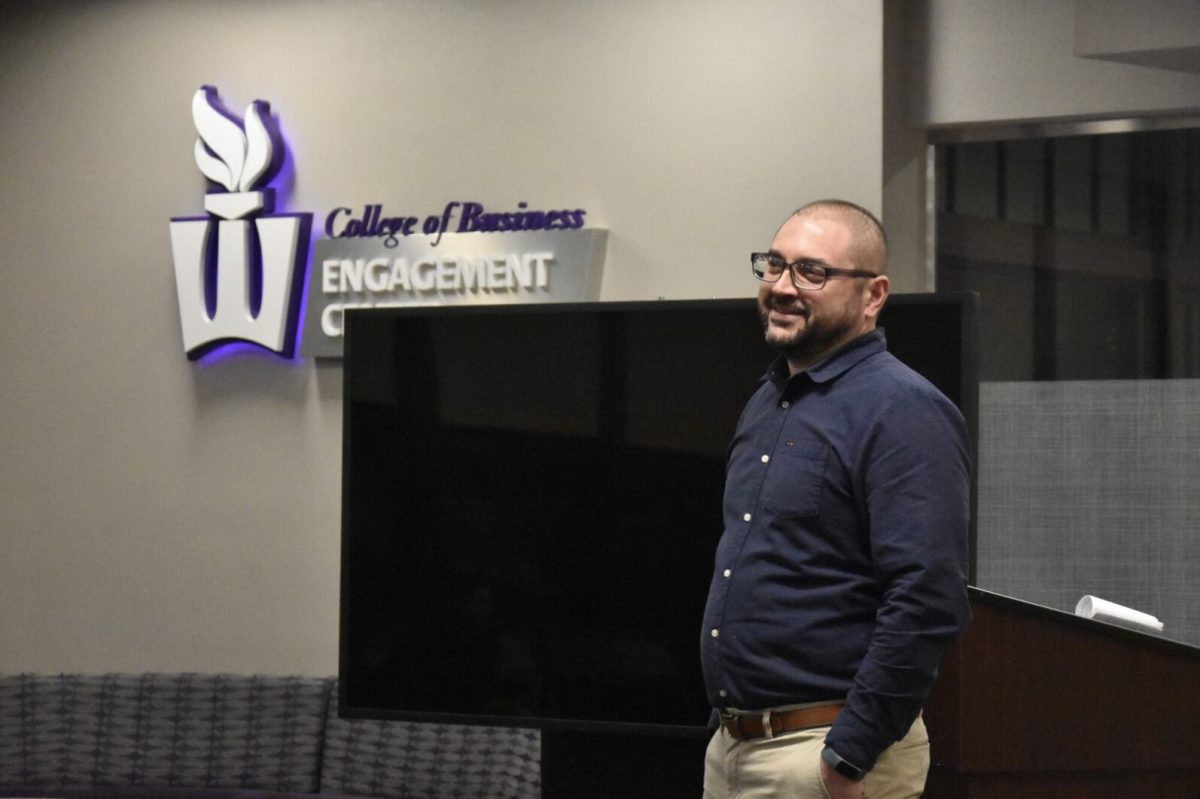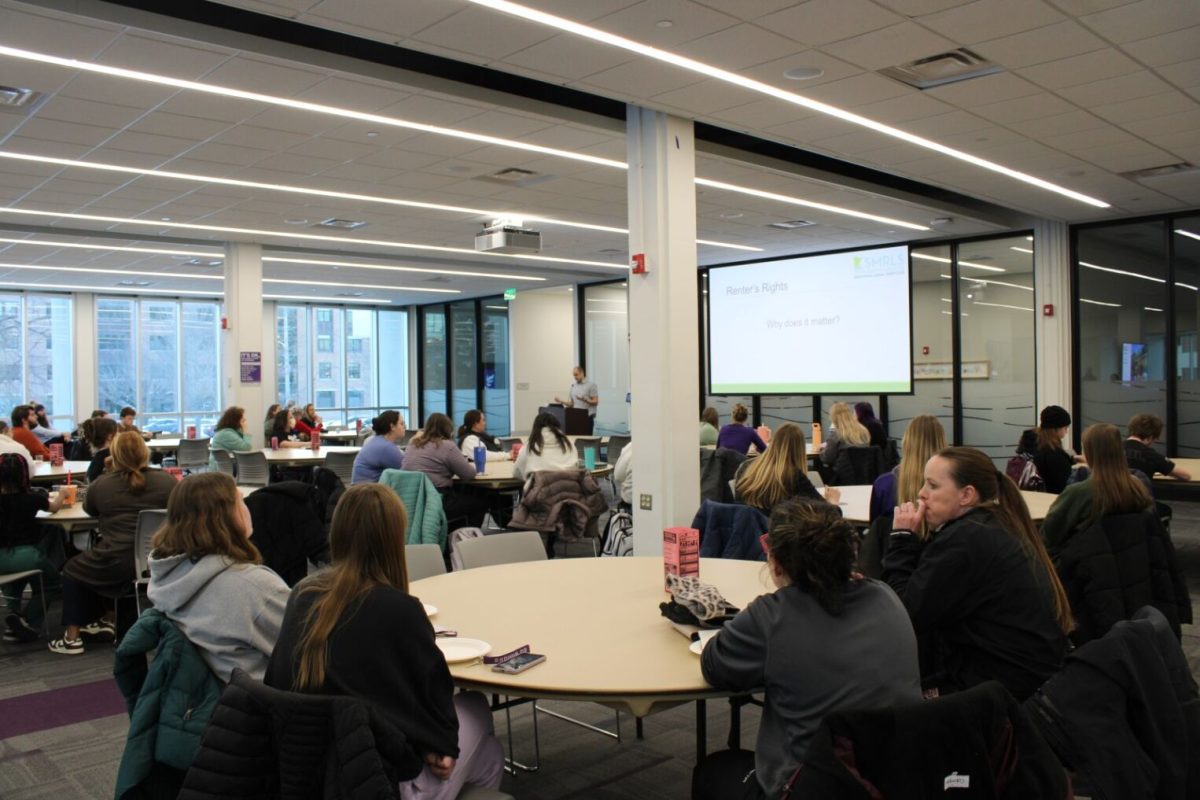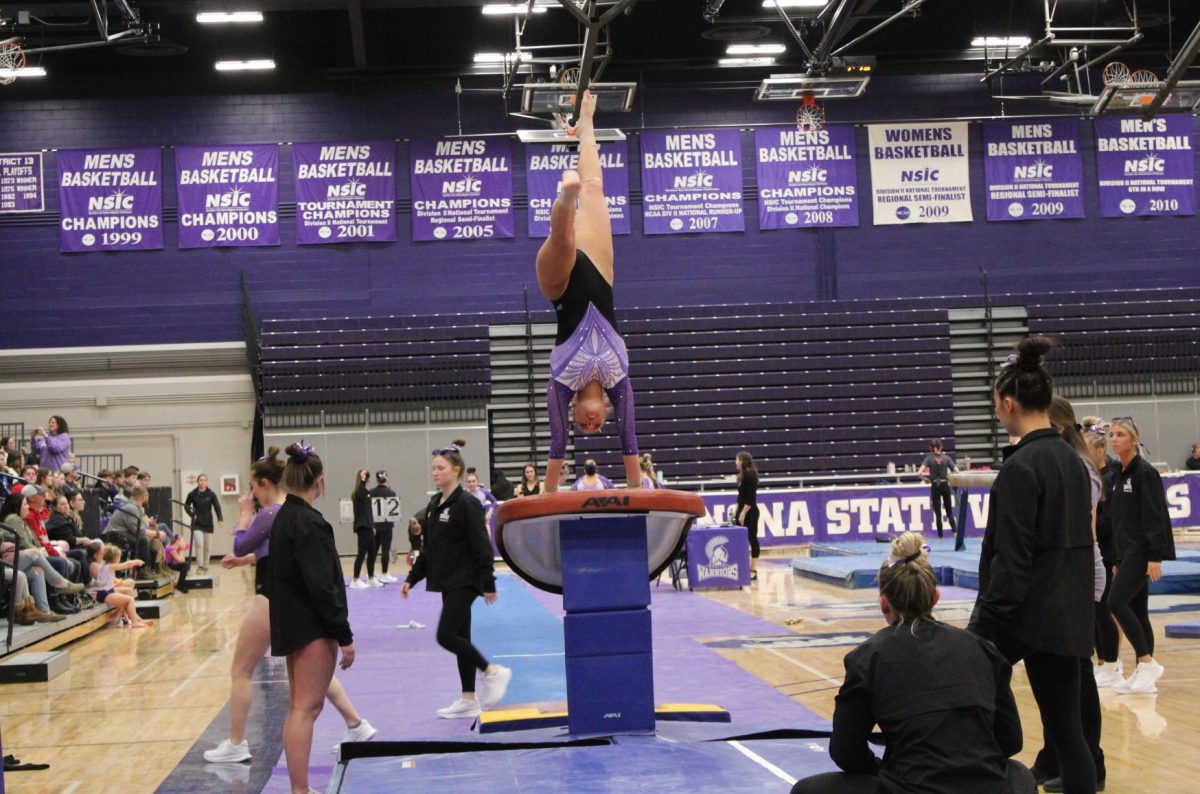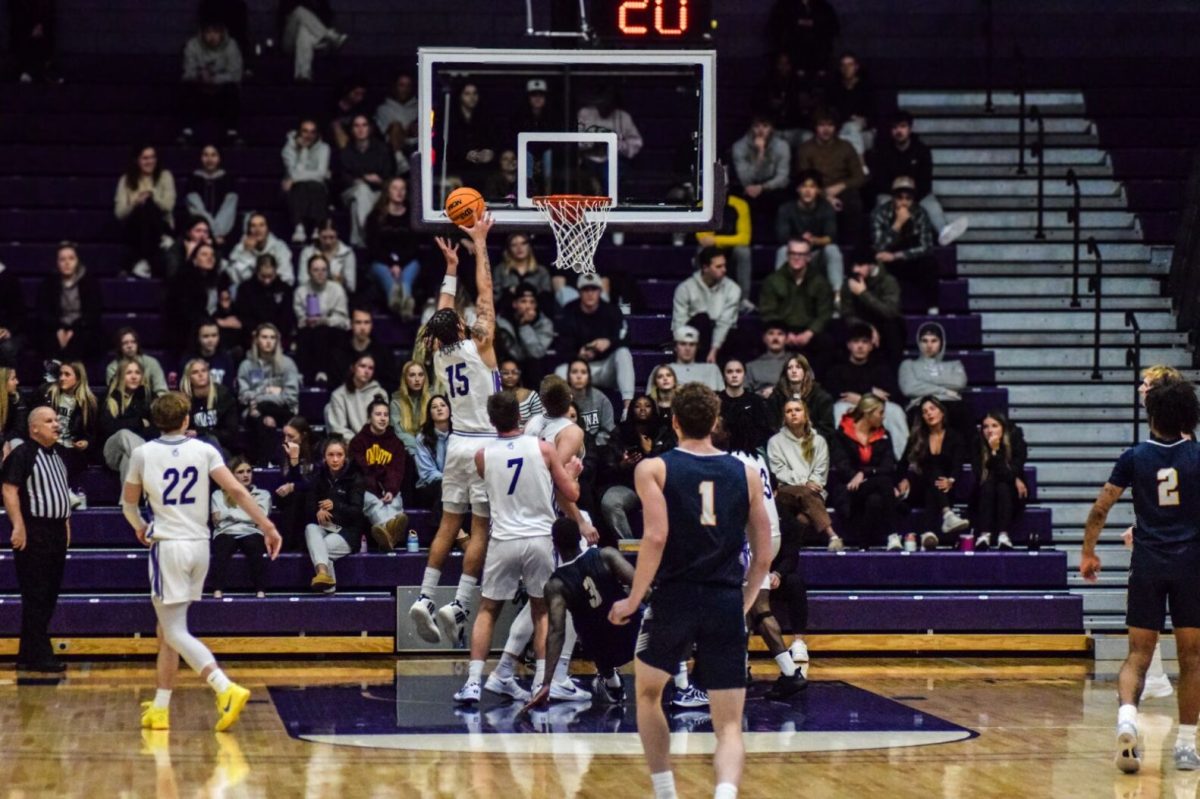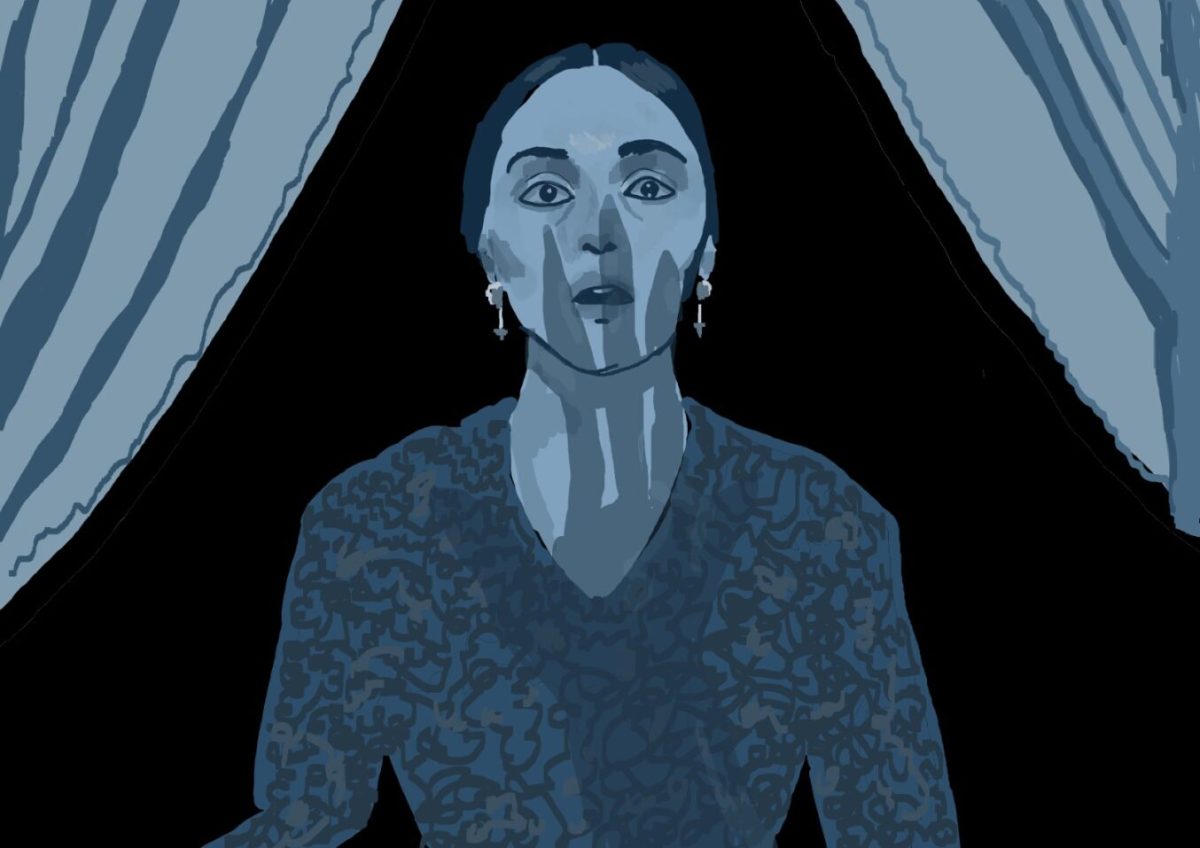Nathaniel Nelson/Winonan
Students, faculty and families alike gathered on campus for a screening of the film “The U.S. vs John Lennon” at Winona State University’s Stark Hall auditorium on Wednesday night.
The 2006 film, directed by David Leaf and John Scheinfeld, focuses on Lennon’s anti-war activism after his time with the Beatles, and the opposition from both the U.S. government and the Nixon administration.
Nathan Wardinski, a DJ at Winona State’s KQAL and host of Sounds of Cinema on the station, was the coordinator of the film showing.
With Lennon’s 75th birthday approaching, he thought of celebrating it by having a film featuring the musician. This film in particular, Wardinski said, is relevant to not only students, but today’s society as a whole.
“They stand to learn something,” Wardinski said. “The film details an aspect of Lennon that even fans of the Beatles may not know of.”
Lennon, as an activist for the anti-war movement, used his fame to spread a message of peace. Many of his biggest chart-toppers were anti-war songs, and eventually the U.S. government took notice. The FBI followed him for years, and former-President Richard Nixon attempted to have him deported.
Wardinski said there are similarities between Lennon’s era and today, cit-ing how wars raged on overseas, the government was performing illicit acts of espionage and entertainment and politics went hand in hand.
“Entertainment and politics have always overlapped,” Wardinski said. “And now we have a reality star, Donald Trump, running for president.”
The difference between the eras lies in the activism, Wardinski said. Unlike the 1970s, artists, directors, and musicians alike tend to stay away from political messages, for fear of alienating potential fans. Pop music in particular has taken a beating politically, changing from a genre full of substance to a formulaic system of clichés, Wardinski said.
“Lennon makes us think of pop music in a meaningful way,” Wardinski said, citing classic songs such as “Imagine” and “Give Peace a Chance.”
It’s songs like these, Wardinski said, that showcase the potential for music as a political platform.
“I hope that people see that what they consume can be more than fluff or filler.” Wardinski said.
After working for 10 years as a wedding DJ, Wardinksi does see that entertainment for entertainment’s sake is necessary but something that should be a companion piece to something more substantive.
“I can’t fault people for wanting just entertainment. There’s a place for “I Want to Hold Your Hand,” or the most recent Nicki Minaj or Katy Perry song,” Wardinski said. “But music, and art in general, can do more than that.”




